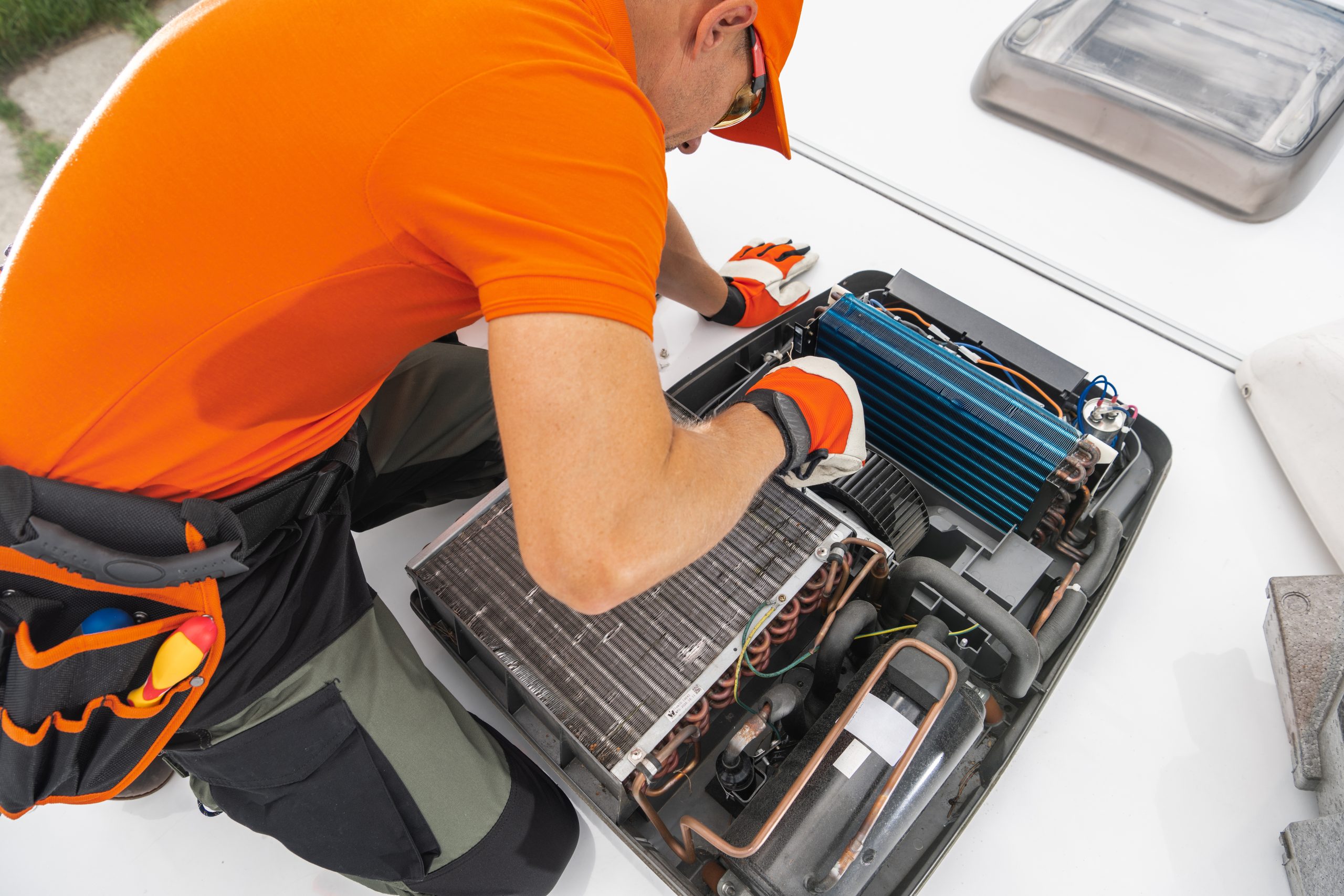Regular RV service isn’t just good maintenance—it’s essential to keeping your adventures on track. Whether you’re prepping for a long road trip or just trying to avoid costly repairs, staying ahead of routine tune-ups can help you spot issues early and protect your investment.
But how much should you expect to pay? The answer depends on your rig, location, and what needs doing.
What’s Included in an RV Tune-Up?
An RV service can include a variety of inspections and replacements. For motorhomes, this often looks similar to a car tune-up—checking ignition systems, spark plugs, fluids, brakes, belts, and filters. For towable RVs, service may center around brake inspections, tire checks, seal inspections, and overall safety systems.
Depending on mileage, age, and driving conditions, a basic RV tune-up may involve:
- Oil and filter changes
- Tire rotation and brake inspection
- Air and cabin filter replacement
- Spark plug inspection or replacement
- Fluid top-offs and flushes (transmission, coolant, brake)
- Visual inspection of belts, hoses, and electrical systems
- Generator maintenance
For larger Class A motorhomes or older rigs, service may also include fuel system cleaning, alignment checks, and drivetrain assessments.
Typical RV Service Costs
Costs vary widely depending on your RV class, engine type, and what you need done. Here are some average price ranges to expect:
Service | Typical Cost |
Oil change (gas engine) | $100–$250 |
Oil change (diesel pusher) | $200–$500 |
Generator service | $100–$300 |
Spark plug replacement | $150–$500 |
Brake inspection | $50–$150 |
Full tune-up | $300–$1,200+ |
If you visit a dealership or RV specialty shop, expect to pay more than a general mechanic—but you’ll likely get techs familiar with RV systems and OEM parts.
What Affects the Cost?
1. RV Size & Engine Type
Larger rigs with diesel engines are more expensive to service than smaller gas-powered units. More systems = more complexity.
2. Location
RV service costs are often higher in metro areas than rural ones. Regions with harsher climates (coastal salt air, desert dust, extreme cold) may also require more frequent maintenance.
3. Service Provider
Dealerships often charge premium prices, but may have more advanced diagnostic tools. Independent RV techs or mobile service providers might offer better rates—but fewer amenities.
4. Age & Mileage
Older RVs typically require more extensive servicing and replacement parts, especially if they’ve been sitting unused or have high mileage.
When Should You Schedule RV Service?
While every RV is different, a few general guidelines can help:
- Follow the manual: Stick to the intervals your manufacturer recommends. Neglecting them can lead to warranty issues or premature wear.
- Before a trip: A full inspection before a long haul can save you major headaches on the road.
- When something feels off: Unusual sounds, dashboard warnings, rough starts, or electrical glitches are all signs it’s time for a check-up.
Tips for Saving on RV Service
- Look for coupons or specials at local RV dealers or service centers
- Bundle services (like oil change + filter + generator service) for better pricing
- Get quotes from multiple shops before booking
- Stay on top of maintenance to prevent bigger—and more expensive—issues later
Keep Your RV Running and Protected with RV Service
Your rig is more than just a vehicle—it’s your ticket to the open road. Keeping it in shape with regular RV service means fewer breakdowns, better performance, and longer life. And with the right insurance, you’re covered even when things don’t go as planned.
Need help protecting your RV?Reach out to Happy Camper Insurance for smart, affordable coverage designed with RVers in mind.


